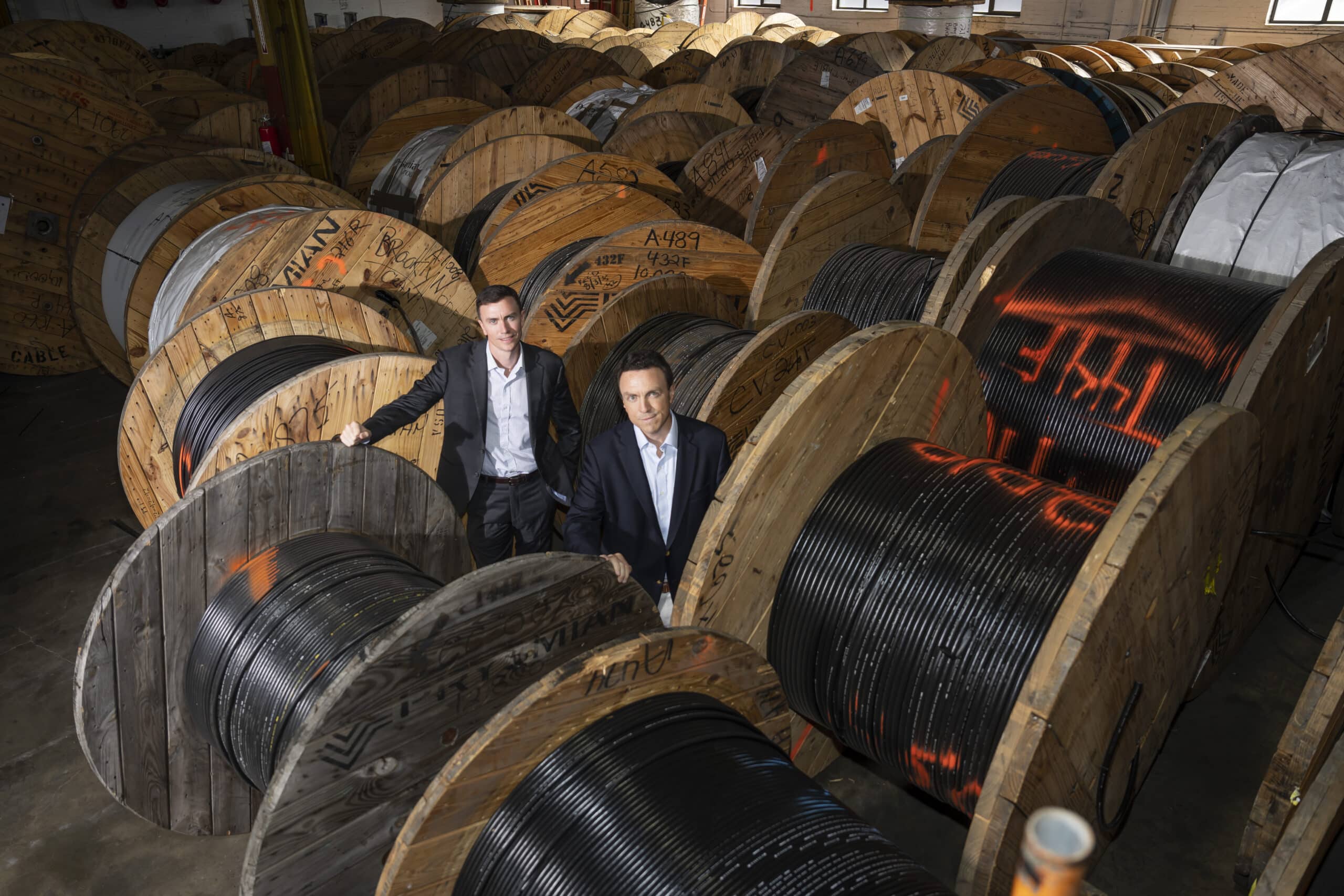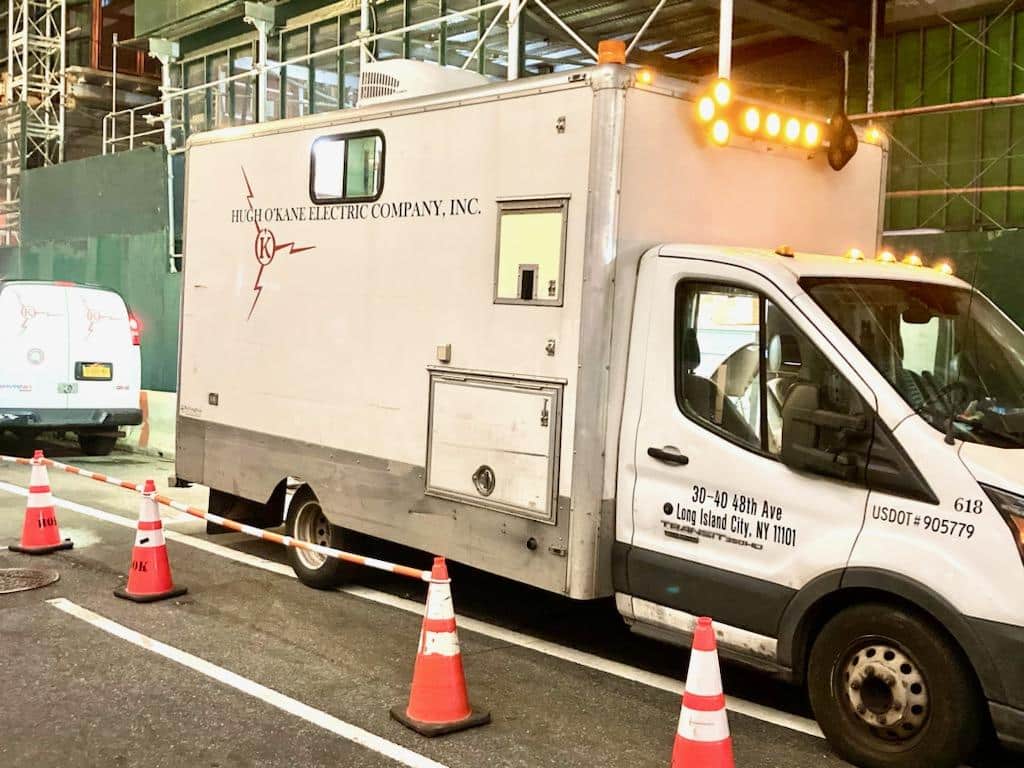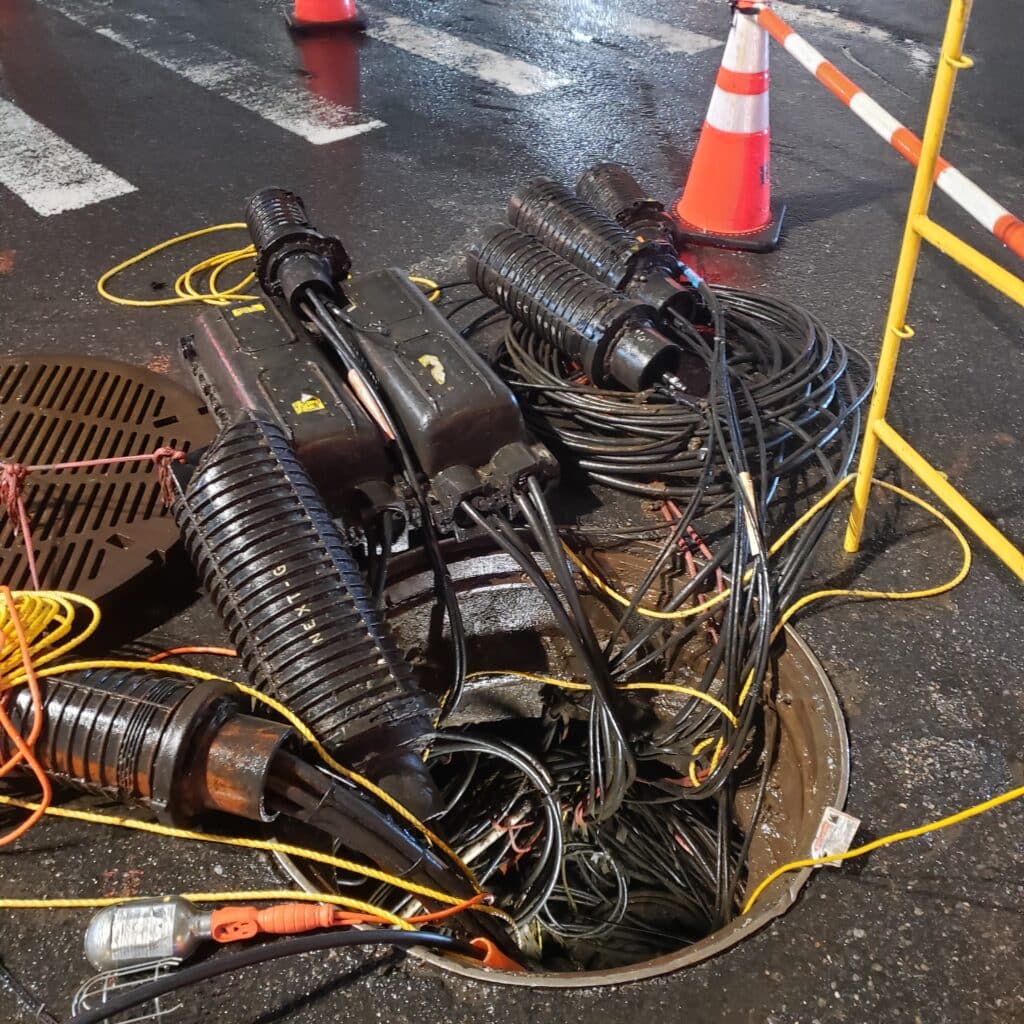
In the bustling city that never sleeps, there lies a powerhouse in the electrical contracting world, a family-owned beacon of industry whose roots dig deep into the concrete of New York City. For 78 years, Hugh O’Kane Electric Company has been lighting the way, not just with wires and switches, but with innovation, resilience, and a pioneering spirit that propels communication forward.

Founded in 1946, Hugh O’Kane Electric began as a service provider to the printing industry in Lower Manhattan. The seismic transition from printing presses to digital pulses didn’t happen overnight, but under the stewardship of a new generation led by the founder’s sons and grandchildren, Hugh O’Kane Electric pivoted to commercial work. Their foresight would spark an evolution that steered the company firmly into the telecommunications realm.
In the 1980s, a chance collaboration with Western Union marked their foray into telecommunications as they embarked on building the first fiber network in New York City. The uncertain terrain of this new technology didn’t deter them; they rode on the winds of “yes,” echoing the actor’s creed to grab opportunity by the reins. This bold step strode into history in 1986, plunging Hugh O’Kane Electric into the forefront of an industry transformation.
The company’s tenacity was battle-tested in the ’93 World Trade Center bombing. When the original Teleport Communications Group switch went dark, Hugh O’Kane Electric’s team worked through the night and for days on end to keep the nascent fiber network alive. Their success cemented fiber optics as a reliable backbone for New York’s communications and solidified Hugh O’Kane’s reputation as the premier telecom contractor in the city.

Hugh O’Kane Electric understood early that “wireless” was a misnomer. The proliferation of wireless devices depended—and still depends—on a robust fiber network. The company transitioned yet again, from enterprise fiber work to supporting wireless initiatives. They’ve woven wireless threads through New York City, bridging kiosks for free Wi-Fi with Link NYC, erecting small cell antennas on poles, and conquering public rights-of-way to enhance city-wide connectivity.
But innovation doesn’t occur in a vacuum, especially in a city tangled with regulatory hurdles. Hugh O’Kane Electric stands among the champions at the New York State Wireless Association (NYSWA), advocating for smarter, faster deployment of wireless networks. Their voice isn’t just for their benefit; it’s a clarion call for New Yorkers’ access to essential services, a battle against the digital desert exposed by the COVID-19 pandemic.
Hugh O’Kane Electric’s expertise has touched some of the most iconic places in New York. From installing the DAS system at the One World Trade Center to the wireless networks at the US Tennis Center and countless in-building developments, they’ve been pivotal in creating spaces where history and connectivity converge.

“I think more than anything, what NYSWA does is provides perspective on what other people are doing and the challenges they’re facing,” said Hugh R. O’Kane, President, and grandson of the company’s founder. “NYSWA shows us that we as an industry are all facing the same challenges in New York. And if it were just a little easier, we could really benefit the citizens of New York. NYSWA is a powerful tool in working to streamline processes to accelerate progress in New York City.”
Today, Hugh O’Kane Electric remains an invisible giant in New York City’s streetscape, the silent sentinel ensuring that millions can communicate, connect, and thrive in the digital age. They may be the force “behind the scenes” or “working in the shadows,” but their impact is felt in every corner of the city, every time a New Yorker texts, calls, or streams.
Through nearly eight decades, Hugh O’Kane Electric has been more than a company; they’ve been a family, an institution, and above all, a testament to the relentless innovation that powers the veins of New York City. The company isn’t just part of history; it continues to write it—one cable, one antenna, one network at a time.
